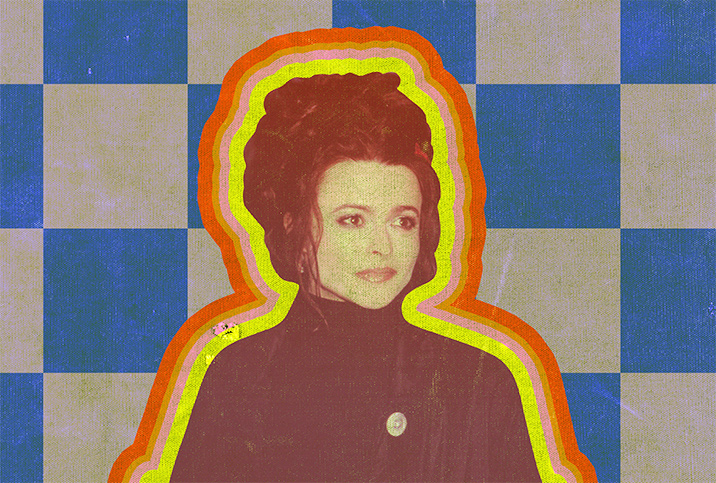Helena Bonham Carter Talks Going Through Menopause With Kids

Helena Bonham Carter wants you to know that going through menopause does not render you irrelevant—despite what Hollywood might tell you.
In an interview with British newspaper the Sunday Times published Nov. 26, the actress said she's grateful that the stigma surrounding women and menopause is lifting.
"There was a shame about it, because I think [what's] wrapped up with it is this false idea that you're obsolete once you stop producing eggs," Bonham Carter said in the article. "It's really unfair because people can become very seriously deranged because of the hormones. But also it's a thing of wonder, the gift of being able to make a child—and this is the payback."
The 56-year-old actress, now postmenopausal, spoke candidly about her experience of going through the transition to menopause—also known as perimenopause—as her son Billy and daughter Nell went through puberty.
"There's quite an interesting thing when you have these two moments of change: You're going through the menopause and they're going through puberty," Bonham Carter recalled. "You're both basically going insane at the same time, so that's an interesting challenge."
Puberty and menopause: Similarities and differences
Interestingly, the clash of perimenopause and puberty today is more common than ever, as the median age of women giving birth was 30 years old in 2019, compared with 25 years old in 1979. The menopausal transition most often begins between ages 45 and 55, so more and more mothers are undergoing a dramatic reproductive transformation at the same time as their adolescent kids.
Some medical professionals—including Mary Jane Minkin, M.D., a practicing gynecologist and clinical professor in the Department of Obstetrics, Gynecology, and Reproductive Sciences at the Yale University School of Medicine—describe perimenopause as a kind of reverse puberty.
"Puberty and menopause are basically mirror images," said Minkin.
Puberty is the process where an adolescent reaches sexual maturity and transitions into a reproductive state. For people with ovaries, menarche, or the beginning of the menstrual cycle, occurs toward the end of puberty.
"During puberty, the ovaries wake up—but they do it in fits and starts,” said Minkin. “So very few young women start having periods every month. When they start they are very irregular, and are often associated with bleeding without ovulating."
"The reverse happens in perimenopause," she continued. Perimenopause is the shift from a reproductive state to a nonreproductive state for people with ovaries, cumulating with menopause, or the end of the menstrual cycle, which occurs after 12 months without a period.
Only 7 percent of women ver have regular periods and then stop suddenly, according to Minkin. "Instead, [most] start skipping periods, and again, their wacky periods are also not associated with ovulation."
Despite falling on opposite ends of the reproductive period, puberty and menopause have many similarities.
For starters: "Both states reflect dynamic hormonal fluctuations impacting both physical and mental outcomes," said Kecia Gaither, M.D., M.P.H., a board-certified OB-GYN based in New York.
Shared hormonal shifts during puberty and menopause may manifest in similar experiences. "Abrupt ups and downs of estrogen levels can make women feel different moods," said Minkin.
"Estrogen impacts serotonin production; serotonin is a mood regulator produced by the brain," added Gaither. "When the body produces less estrogen, emotions may feel off balance."
For kids, this may materialize in moodiness. For adults, it might mean experiencing erratic emotions or, as Bonham Carter put it, becoming "seriously deranged."
Another parallel is that your body may start behaving in ways that are unusual, unfamiliar and unpredictable. "Fluid retention, breast soreness-all of these can be variable in both [puberty and perimenopause]," said Minkin. "Sometimes young women will ovulate, sometimes they won't. If they are ovulating, they may well have some pelvic pain and some cramps with their periods. Ditto the perimenopausal women—so predictability is out the window."
Much like puberty, the transition to menopause is a natural part of the life cycle. Both are a time of change that can give way to a new, possibilities-packed chapter.
As Bonham Carter said of the postmenopausal period: "We're richer in character and we have more to give. Why should we be diminished just when we're getting going?"




















